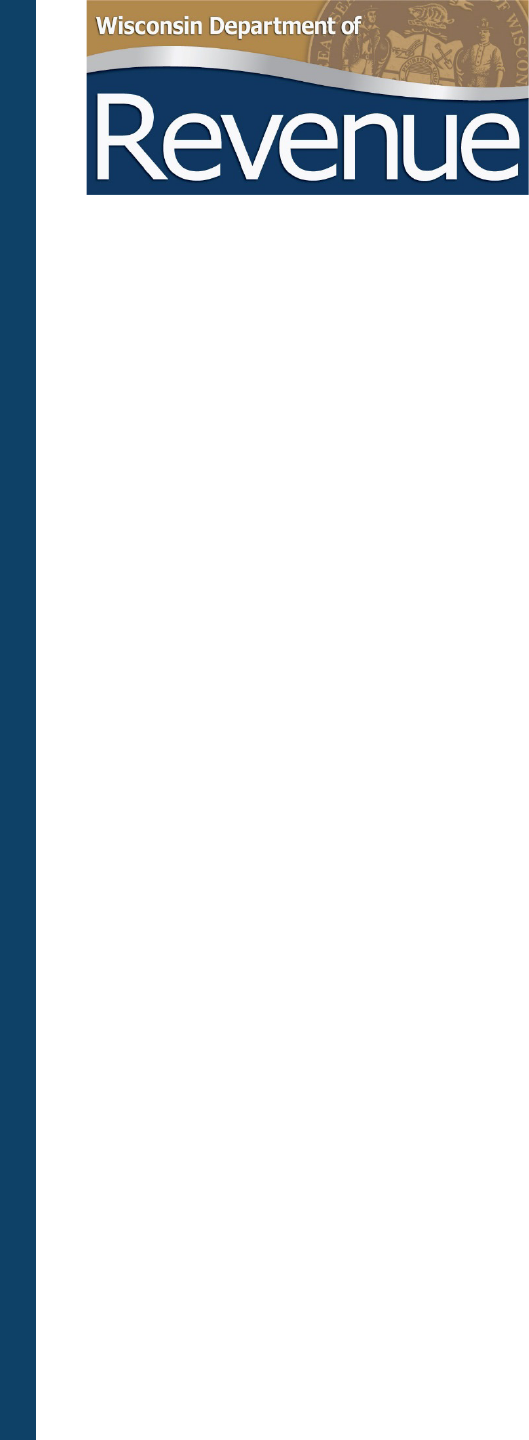
Information for
Wisconsin Alcohol
Beverage and Tobacco
Retailers
Includes information on:
• Licenses and permits
• Prohibited activities
• Underage persons and minors
• Cigarette and tobacco products
• Electronic vaping devices
• Video gambling
Publication 302 (05/24)
TABLE OF CONTENTS
Page
1. INTRODUCTION .......................................................................................................................................... 4
2. DEFINITIONS ............................................................................................................................................... 4
3. MUNICIPAL RETAIL LICENSES ....................................................................................................................... 5
A. General ............................................................................................................................................................. 5
B. License Requirements ...................................................................................................................................... 5
4. OTHER LICENSES, PERMITS AND REGISTRATIONS ....................................................................................... 10
A. Seller's Permit ................................................................................................................................................. 10
B. Federal Alcohol Dealer Registration ............................................................................................................... 10
5. PROHIBITED ACTIVITIES ............................................................................................................................. 10
A. Unlicensed Premises Sales ............................................................................................................................. 10
B. Sale to Other Licensees .................................................................................................................................. 11
C. Sales to Intoxicated Persons ........................................................................................................................... 11
D. Refilled Liquor Bottles .................................................................................................................................... 11
E. Corkage Fees ................................................................................................................................................... 11
F. Giveaways ....................................................................................................................................................... 11
G. Minimum Markup ........................................................................................................................................... 12
6. UNDERAGE PERSONS AND MINORS ........................................................................................................... 12
A. Entering Licensed Premises ............................................................................................................................ 12
B. Verifying Identification and Age ..................................................................................................................... 13
C. Possession by Underage Persons.................................................................................................................... 15
D. Sales and Service to Underage Persons .......................................................................................................... 15
E. Employing Minors ........................................................................................................................................... 15
F. Other .............................................................................................................................................................. 16
G. Penalties ......................................................................................................................................................... 16
7. RECORDKEEPING ....................................................................................................................................... 17
A. Invoices ........................................................................................................................................................... 17
B. Identification Register .................................................................................................................................... 17
8. OTHER ALCOHOL BEVERAGE INFORMATION ............................................................................................... 18
A. Safe-Ride Program .......................................................................................................................................... 18
B. Payment for Alcohol Beverages ...................................................................................................................... 18
C. Nonalcohol Beverages .................................................................................................................................... 18
D. Temporary Class "B" and "Class B" Licenses ................................................................................................... 18
E. Inspection of Licensed Premises .................................................................................................................... 20
9. CIGARETTE AND TOBACCO PRODUCTS ....................................................................................................... 20
A. Definitions ...................................................................................................................................................... 20
B. Licenses .......................................................................................................................................................... 21
C. Purchases ........................................................................................................................................................ 21
D. Sales ................................................................................................................................................................ 21
E. Underage Persons ........................................................................................................................................... 22
10. VAPOR PRODUCTS .................................................................................................................................... 22
A. Definitions ...................................................................................................................................................... 22
B. Permit ............................................................................................................................................................. 22
C. Taxes ............................................................................................................................................................... 22
11. VIDEO GAMBLING ..................................................................................................................................... 23
A. Enforcement ................................................................................................................................................... 23
B. Violations ........................................................................................................................................................ 23
C. Taxes ............................................................................................................................................................... 24
12. RESOURCES ............................................................................................................................................... 24
A. Retail License Holders List .............................................................................................................................. 24
B. Wholesale Permit Holders List........................................................................................................................ 24
C. Published Guidance ........................................................................................................................................ 24
D. Subscribe to DOR News .................................................................................................................................. 24
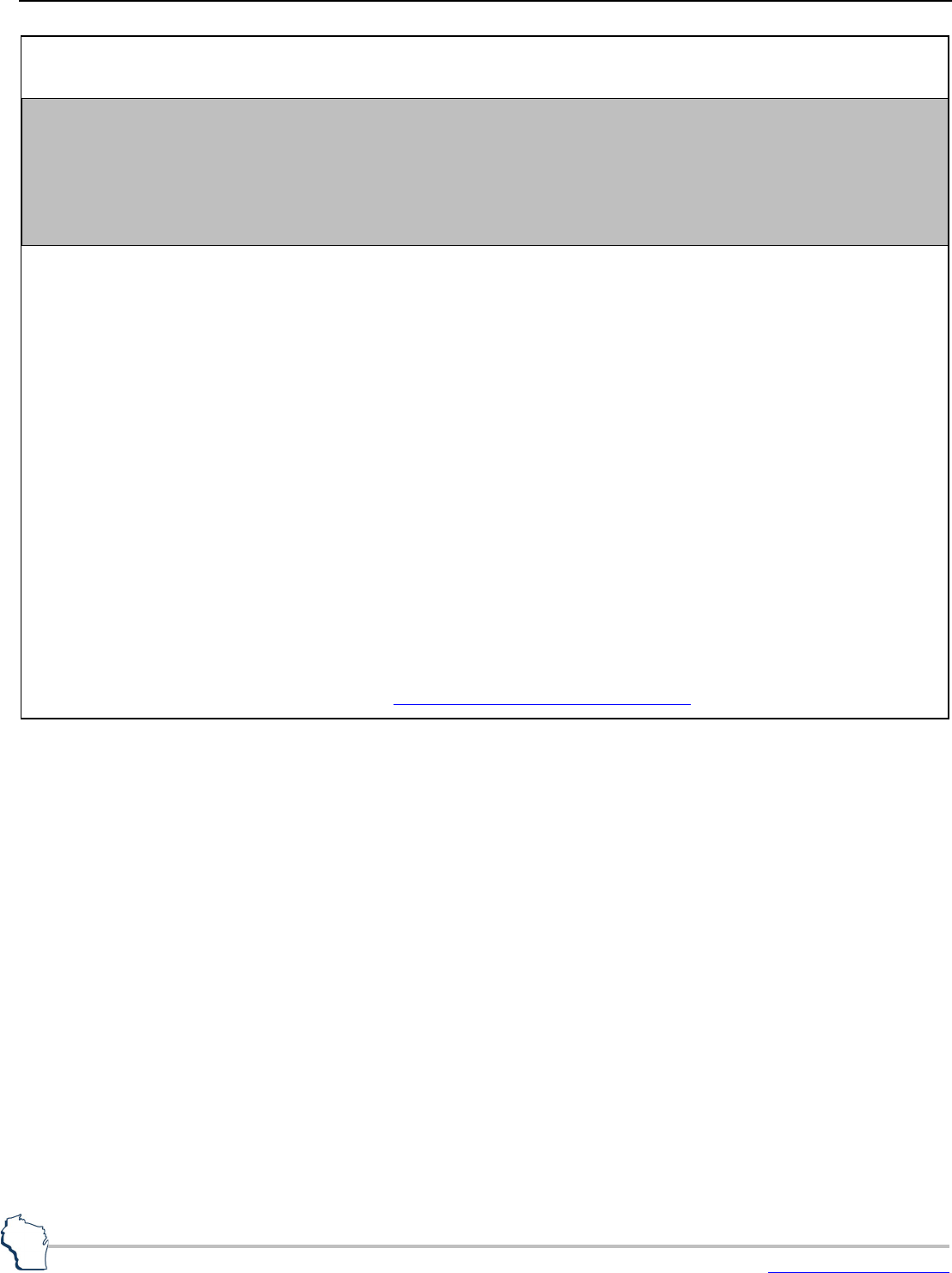
Information for Wisconsin Alcohol Beverage and Tobacco Retailers Publication 302
Back to Table of Contents
4
1. INTRODUCTION
This publication provides information about Wisconsin's alcohol beverage, tobacco, and vapor products laws that
affect retailers. The information summarizes laws in chs. 125, 134, 139, and 945, Wis. Stats.
Municipal ordinances may also affect retailers. Contact your municipal clerk if you have questions about local
ordinances.
2. DEFINITIONS
The following terms are used for purposes of this publication.
Adult – A person 18 years of age or older.
Alcohol Beverages – A statutory term which includes beer, wine, and liquor.
Beer – A fermented malt beverage under chapter 125, Wis. Stats.
Cider – An alcohol beverage obtained by fermentation of the juice of apples or pears that contains 0.5 to 7.0 percent
alcohol by volume. "Cider" may be flavored, sparkling, and/or carbonated.
IMPORTANT UPDATES AND CHANGES
• Fermented Malt Beverage Definition. Effective May 1, 2024, the definition of fermented malt beverage has been
expanded to include alcohol beverages classified as beer federally. All products labeled with the word "beer"
(except sake) are now fermented malt beverages and may be sold through the associated retail license. Page 4.
• Taste Samples. Effective May 1, 2024, licensed retailers may allow producers of alcohol beverages to provide
taste samples on the licensed premises, with some restrictions. Page 8
• Operator's (Bartender's) Permits. Effective January 1, 2025, The Division of Alcohol Beverages may issue
operator’s permits. This state-issued permit will allow a person to serve and sell alcohol beverages on behalf of
any licensed establishment anywhere in Wisconsin. Municipal governments may continue to issue municipal
operator’s licenses, which are valid only in that municipality. Page 9.
• Batch Cocktails. Effective May 1, 2024, "Class B" liquor license holders may premix cocktails in advance of their
sales, provided certain restrictions are followed, such as only storing the batch for up to 48 hours. Page 9.
• Safe Ride Program. Effective May 1, 2024, the Division of Alcohol Beverages must provide information on the
Safe Ride Program in this booklet. Page 18.
• Electronic Vaping Devices. Effective March 6, 2024, sellers of electronic vaping devices are required to hold a
municipal retail license for cigarettes, tobacco products, and electronic vaping devices. Page 20.
• License Listings. The Department of Revenue (DOR) now publishes on its website lists of businesses who hold
retail alcohol beverage licenses. Go to the Retail Alcohol Beverage License Search
to see the list. Page 24.
Applicable Laws and Rules
This document provides statements or interpretations of Wisconsin and federal laws and regulations enacted as of
May 1, 2024. Laws enacted and in effect after this date, new administrative rules, and court decisions may change the
interpretations in this document. Guidance issued prior to this date, that is contrary to the information in this
document is superseded by this document, according to sec. 73.16(2)(a), Wis. Stats.

Information for Wisconsin Alcohol Beverage and Tobacco Retailers Publication 302
Back to Table of Contents
5
Class "A" Beer License – Authorizes the retail sale of beer in the original sealed containers for consumption off the
licensed premises.
"Class A" Liquor License – Authorizes the retail sale of liquor, including wine and cider, in the original containers for
consumption off the licensed premises.
"Class A" (Cider Only) License – Authorizes the retail sale of cider, but no other intoxicating liquor, in the original
containers for consumption off the licensed premises.
Class "B" Beer License – Authorizes the retail sale of beer for consumption on and off the licensed premises.
"Class B" Liquor License – Authorizes the retail sale of liquor by the glass for consumption on or off the licensed
premises and, if allowed by municipal ordinance, in the original sealed container for off-premises consumption.
"Class C" Wine License – Authorizes the retail sale of wine by the glass for consumption on the licensed premises.
Intoxicating Liquor (or Liquor) – Alcohol beverages, except beer, containing 0.5% or more alcohol by volume,
including wine.
Legal Drinking Age – 21 years of age.
Minor – A person under 18 years of age.
Provisional Retail License – Authorizes activities of a regular retail licenses for 60 days or until a regular license is
issued, whichever is sooner.
Underage Person – A person who is not of legal drinking age.
3. MUNICIPAL RETAIL LICENSES
A. General
A license is a privilege granted by a municipality (city, village, or town) to a person (e.g., natural person,
partnership, limited liability company, or corporation) that authorizes the sale of alcohol beverages for a
specified time period. The governing body of the municipality may, but is not required to, issue retail liquor and
beer licenses. The municipality may refuse to issue retail licenses if it uses good judgment and does not
discriminate between applicants.
B. License Requirements
License requirements and who may issue them are provided by Wisconsin statute and established by ordinance.
License requirements for all retail licenses and specific licenses follow.
(1) All Licenses
• Face-to-Face Sales at Licensed Premises – With limited exceptions, alcohol beverages may only be sold
to consumers who are physically at the licensed premises. (secs. 125.272 and 125.51(6), Wis. Stats.)
Example: The following sales of alcohol beverages are prohibited because they were not made face-to-
face with the consumer on the licensed premises:
o Customer phones Pizza Parlor, which holds a Class "B" beer license. Customer orders a pizza and a
six-pack of beer for delivery to their home.
o A person calls Liquor Store and requests two half-barrels of beer delivered to their home.

Information for Wisconsin Alcohol Beverage and Tobacco Retailers Publication 302
Back to Table of Contents
6
o A home-delivery grocery service takes an internet order for the sale and delivery of wine and beer
for a holiday party, receiving payment electronically.
• Closing Hours – Customers must leave the premises by the closing hour noted under the specific licenses
below. Internal business operations, such as counting cash, cleaning, repairs, etc., may be done after
hours, but licensees must prove that anyone on the premises after hours is there for these purposes.
Exceptions:
o Class "A" premises may remain open for the conduct of regular business but may not sell beer
between 12 midnight and 6 a.m., or at any other time during which the sale of beer is prohibited by
a municipal ordinance.
o The following businesses holding "Class B" and Class "B" licenses may remain open after closing
hours noted below to conduct their regular business, although they may not permit consumption
of, or sell, alcohol beverages after those closing hours:
Hotels and restaurants whose "principal business" is furnishing lodging and food to customers
"Principal business" means the primary activity as determined by analyzing the amount of
capital, labor, time, attention, and floor space devoted to each business activity and by analyzing
the sources of net income and gross income. The name, appearance, and advertising of the
entity may also be considered if given less weight.
Bowling centers
Movie theaters
Painting studios
Indoor horseshoe-pitching facilities
Indoor golf and baseball facilities
Golf courses and clubhouses
Curling clubs
Racetrack grounds as defined in sec. 125.27(5)(a), Wis. Stats.
For determining closing hours, Daylight Saving Time begins at 2:00 a.m. the second Sunday in March
and ends at 2:00 a.m. the first Sunday in November. Therefore:
o Clocks are set ahead one hour at 2:00 a.m. the second Sunday in March. Taverns must close at 3:30
a.m. Central Daylight Time on this date.
o On the first Sunday in November, the clocks are set back an hour at 2:00 a.m. Taverns must close at
2:30 a.m. Central Standard Time.
• Licensed Premises Supervision – Except in Class "A" beer premises between midnight and 6:00 a.m. (or
any time when the sale of beer is prohibited by municipal ordinance), one of the following must be
present on licensed premises during business hours:
o Licensee
o Person with an operator's or manager's license
o Adult member of licensee's immediate family (living in the licensee's household)
o Corporation's or limited liability company's agent
o Provisional operator's license holder
The holder must be enrolled in the responsible beverage server training course pending approval of
the operator's license.

Information for Wisconsin Alcohol Beverage and Tobacco Retailers Publication 302
Back to Table of Contents
7
Note: "Immediate supervision" means the licensed person must be able to watch and supervise each
unlicensed person's actions. The licensed person must be in the same room or area as the unlicensed
person or near enough to see and talk to them.
An adult working under the immediate supervision of any of the above does not need an operator's
license.
An operator's license is only valid in the municipality where it has been issued. It does not apply in other
municipalities.
Licensees may be prosecuted for not having the required supervision on their premises.
• Alcohol Beverage Seller/Server Training Course – As a condition of licensing, applicants must
successfully complete an approved alcohol beverage seller/server training course, unless the person:
o Is renewing a retail or an operator's (bartender's) license
o Was an agent within the last two years for a corporation or limited liability company that held a
Class "A" beer, Class "B" beer, "Class A" liquor, "Class A" (cider only), "Class B" liquor, or "Class C"
wine license
o Held a retail license or an operator's or manager's license during the past two years
o Completed an approved course within the past two years
Approved classroom and online courses
are listed on the DOR's website at revenue.wi.gov; search
"Alcohol Seller/Server."
• Display Framed License – All alcohol beverage licenses must be framed and displayed in the room where
the licensed activity occurs. Anyone visiting the business should easily see the licenses. Any related
permits and licenses (e.g., seller's permit) should be displayed with the alcohol beverage license.
(2) Provisional Retail License
• Issued by a designated municipal official only to a person applying for a Class "A" beer, Class "B" beer,
"Class A" liquor, "Class B" liquor, or "Class C" wine licenses.
• Fee determined locally not to exceed $15.
• Expires 60 days after issuance or when the person is issued a license, whichever occurs first.
• May be revoked and/or penalty imposed of not more than $1,000 if issuing official discovers the holder
knowingly provided false information in the application.
• "Class B" liquor license may not be issued if it would exceed the municipality's quota.
• Not more than one provisional retail license may be issued for each type of license applied for by the
holder per year.
(3) Class "A" Beer License
• Authorizes the retail sale of beer in the original sealed containers for consumption off the licensed
premises in any quantity.
•
Beer sales are prohibited between 12:00 midnight and 6:00 a.m.
• Municipalities may further restrict sales hours by local ordinance.
• May give customers two free 3-ounce taste samples of beer between 11:00 a.m. and 7:00 p.m. These
taste samplings may also be done on the licensed premises by a brewer, or their representative,
provided that the beer is purchased by the brewer from the retail licensee, or the brewer brings the

Information for Wisconsin Alcohol Beverage and Tobacco Retailers Publication 302
Back to Table of Contents
8
beer they produce to the retail premises and takes with them any leftover beer at the conclusion of the
tasting.
(4) "Class A" Liquor License
• Authorizes the retail sale of liquor, including wine and cider, in the original containers for consumption
off the licensed premises in any quantity.
• Intoxicating liquor sales are prohibited between 9:00 p.m. to 6:00 a.m.
• Municipalities may further restrict sales hours by local ordinance.
• May give customers one free 0.5-ounce taste sample of intoxicating liquor, or two free 3-oz. taste
samples of wine between 11:00 a.m. and 7:00 p.m. These taste samplings may also be done on the
licensed premises by a winery, manufacturer, or rectifier, or their representative, provided that the
beverages are purchased by the producer from the retail licensee, or the producer brings the products
they produce to the retail premises and takes with them any leftover alcohol beverages at the
conclusion of the tasting.
(5) "Class A" (Cider Only) Liquor License
• Authorizes the retail sale of cider in the original containers for consumption off the licensed premises
in any quantity.
• Issued only to persons holding a Class "A" beer license for the same premises.
• May give customers two free 3-ounce taste samples of cider between 11:00 a.m. and 7:00 p.m. These
taste samplings may also be done on the licensed premises by a winery, manufacturer, or rectifier, or
their representative, provided that the beverages are purchased by the producer from the retail
licensee, or the producer brings the products they produce to the retail premises and takes with them
any leftover alcohol beverages at the conclusion of the tasting.
(6) Class "B" Beer License
• Authorizes the retail sale of beer for consumption on and off the licensed premises in any quantity. The
premises must be closed between the following hours:
o Monday through Friday – 2:00 a.m. to 6:00 a.m.
o Saturday and Sunday – 2:30 a.m. to 6:00 a.m.
o Second Sunday in March – 3:30 a.m. to 6:00 a.m.
Closing is not required on New Year's Eve.
Municipalities may not further restrict the closing hours.
• Beer sales for off-premises consumption are prohibited between 12:00 midnight and 6:00 a.m.
Municipalities may further restrict these sales hours by local ordinance.
May allow a brewer, or their representative, to conduct taste samplings of beer on the licensed
premises provided that the beer is purchased by the brewer from the retail licensee, or the producer
brings the beer they produce to the retail premises and takes with them any leftover beer at the
conclusion of the tasting.

Information for Wisconsin Alcohol Beverage and Tobacco Retailers Publication 302
Back to Table of Contents
9
(7) "Class B" Liquor License
• Authorizes the retail sale of liquor by the glass for consumption on or off the licensed premises.
• A single, open bottle of wine may be taken off the licensed premises if ordered with a meal,
accompanied by a dated receipt, and re-corked or re-capped prior to taking off the licensed premises.
• Wine may be sold in its original container, in any quantity, for on- and off-premises consumption.
• Closing hours are the same as Class "B" beer license.
• Retailers may premix cocktails in bulk containers provided the following conditions are satisfied.
o The mixed drink is provided to the consumer in a glass or other container not exceeding 72
ounces in volume.
o The mixed drink has not been stored in a container for more than 48 hours prior to its sale to a
customer.
o Bulk containers do not exceed 5 gallons in volume.
o The bulk container includes a label stating the following:
That the container holds a batch of premixed drinks and the date and time the batch was
prepared.
Following the words "expiration date," the date and time that is 48 hours after the date and
time the batch was prepared.
The words "contains alcohol."
The name of the person who prepared the batch of premixed drinks in the container.
The ingredients of the batch of premixed drinks, unless the label contains a recipe title for
the batch and the recipe, with a complete ingredient list, is maintained on the premises and
is available for inspection.
• A municipality may allow "Class B" licensees to make retail sales of intoxicating liquor for
off-premises consumption. Check with your municipality to see if this is allowed.
• May allow a winery, manufacturer, or rectifier, or their representative, to conduct taste samplings of
intoxicating liquor on the licensed premises provided that the beverages are purchased by the producer
from the retail licensee, or the producer brings the products they produce to the retail premises and
takes with them any leftover alcohol beverages at the conclusion of the tasting.
(8) "Class C" Wine License
• Authorizes the retail sale of wine by the glass for consumption on the licensed premises.
• A single, open bottle of wine may be taken off the licensed premises if ordered with a meal,
accompanied by a dated receipt, and re-corked or re-capped prior to taking off the licensed premises.
• Closing hours are generally the same as Class "B" beer license.
• May allow a winery, manufacturer, or rectifier, or their representative, to conduct taste samplings of
wine on the licensed premises provided that the wine is purchased by the producer from the retail
licensee, or the producer brings the wine they produce to the retail premises and takes with them any
leftover wine at the conclusion of the tasting.

Information for Wisconsin Alcohol Beverage and Tobacco Retailers Publication 302
Back to Table of Contents
10
(9) Operator’s Licenses and Permits (Bartender’s License)
• Authorizes an individual to make retail sales of alcohol beverages on behalf of a business holding a retail
alcohol beverage license.
• The Division of Alcohol Beverages may issue operator’s permits beginning January 1, 2025.
• An operator's license is valid only in the municipality where issued, however, a permit issued by the
Division of Alcohol Beverages is valid anywhere in the state.
• See section B (1) for more information on Responsible Beverage Server Training Course and licensed
premises supervision requirements.
4. OTHER LICENSES, PERMITS AND REGISTRATIONS
A. Seller's Permit
Every individual, partnership, corporation, or other organization that sells, leases, rents, or licenses tangible
personal property (e.g., alcohol beverages), taxable services and other taxable products in Wisconsin must have
a seller's permit, unless all sales are exempt from Wisconsin sales or use tax.
Example: A nonprofit organization's sales of tangible personal property, including alcohol beverages, taxable
services, and other taxable products are exempt from Wisconsin sales or use tax as occasional sales if (1) its
sales of taxable products do not occur on more than 75 days during the calendar year or taxable sales do not
exceed $50,000 for the calendar year, (2) entertainment at an admission event is not paid more than $10,000,
and (3) it does not hold a seller's permit. For more information about the occasional sales exemption for
nonprofit organizations, see Wisconsin Publication 206
, Sales Tax Exemptions for Nonprofit Organizations.
The alcohol beverage license and seller's permit must be issued in the same legal name (see exception below).
If the alcohol beverage license is issued to a partnership or corporation, the seller's permit must be also. A
limited liability company's (LLC) alcohol beverage license must be in the LLC's legal name, not the trade name
or owner's name.
Exception: If an alcohol beverage license is issued to an LLC,
disregarded for income tax purposes, with a single
member (owner), the LLC's seller's permit may be issued in the name of the single owner. If an LLC applies for
an alcohol beverage license and furnishes a seller's permit that is not in the legal name of the LLC, the
municipality should call DOR at (608) 266-2776 or email DORSalesandUse@wisconsin.gov
to verify whether the
seller's permit is valid for the LLC.
B. Federal Alcohol Dealer Registration
Before beginning business, every retail licensee must register as an alcohol dealer with the federal Department
of Treasury, Alcohol and Tobacco Tax and Trade Bureau (TTB), using Form 5630.5d
. Once registered, any change
to legal name, trade name, address, premises location, telephone number, business type, or FEIN should be
reported before the subsequent July 1 using the same form.
5. PROHIBITED ACTIVITIES
A. Unlicensed Premises Sales
The sale of alcohol beverages at an unlicensed premises is prohibited (see sec. 125.06, Wis. Stats., for a list of
exceptions).
"Sale," "sold," or "sell" includes the transfer, gift, barter, trade, exchange, or any shift, device, scheme, or other
transaction to obtain alcohol beverages.
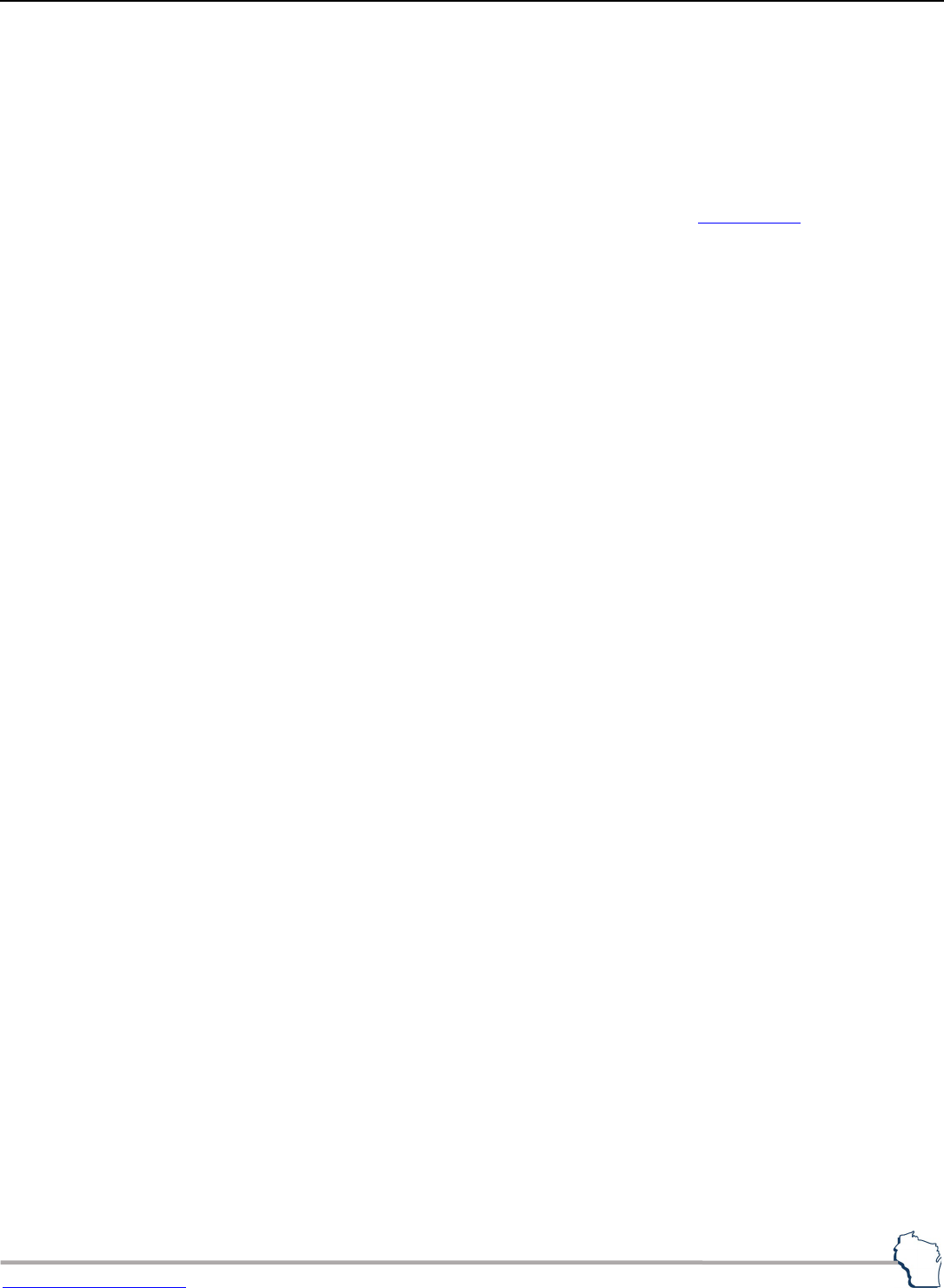
Information for Wisconsin Alcohol Beverage and Tobacco Retailers Publication 302
Back to Table of Contents
11
B. Sale to Other Licensees
Sales of alcohol beverages by an alcohol beverage licensee to another retail licensees for resale are prohibited.
Exception: If a licensed business is sold, it may transfer its sealed liquor, wine, and beer (alcohol beverage)
inventory to another retail licensee in Wisconsin. Cigarettes and tobacco products may not be similarly
transferred.
In place of invoices, list the entire sealed inventory of the stock transferred using Form AT- 900
, Alcohol Beverage
Stock Transfer. Make a copy for the buyer and keep the original for your records. The buyer must keep the copy
on its licensed premises for two years.
C. Sales to Intoxicated Persons
It is illegal to furnish alcohol beverages to an intoxicated person. The penalty for this violation is a fine of $100
to $500, imprisonment for not more than 60 days, or both.
D. Refilled Liquor Bottles
It is illegal to refill liquor bottles with any substance, even the same brand of liquor.
When a bottle is empty, deface its label. Break the bottle unless placed in a container marked "For Recycling
Only."
E. Corkage Fees
If the restaurant has an alcohol beverage license, the only alcohol beverages allowed on the premises are those
purchased by the restaurant from a permitted Wisconsin wholesaler. The retailer must have invoices from the
wholesaler showing which products were purchased from the wholesaler.
Wisconsin alcohol beverage law does not permit "corkage fees." These fees, charged by restaurants, allow
patrons to carry in their own alcohol beverages for consumption on the restaurant premises.
If the restaurant does not have an alcohol beverage license, consumption of alcohol beverages is prohibited.
The restaurant owner can be criminally charged for allowing illegal consumption on the premises.
F. Giveaways
Giving away alcohol beverages or using any other device to evade the law relating to its sale is illegal. Examples
of these illegal transactions at unlicensed premises include:
• A "free" drink with a meal
• A cover charge where mix is furnished at a price with "no charge" for liquor
• A "free" bottle of liquor tied to the sale of some other item
Violators may be fined not more than $10,000 or imprisoned for not more than nine months, or both.

Information for Wisconsin Alcohol Beverage and Tobacco Retailers Publication 302
Back to Table of Contents
12
G. Minimum Markup
Alcohol beverages may not be sold at less than cost. Cost includes a presumptive 3% markup by wholesalers
and 6% by retailers.
For questions on cigarette and tobacco products pricing and markup, contact the Wisconsin Department of
Agriculture, Trade & Consumer Protection, Trade Practices, at (608) 224-4925 or (608) 224-4989.
6. UNDERAGE PERSONS AND MINORS
A. Entering Licensed Premises
No retail licensee may allow an underage person to enter any part of the licensed premises for any purpose
unless an exception applies.
Retailers should demand proof of age of anyone entering the premises who appears to be under the legal
drinking age. Customers may prove age with one of the following, if valid:
• Driver's license
• State ID card
• Military ID card
• U.S. passport
• ID card issued by a federally recognized American Indian tribe or band in Wisconsin
• Any other form of identification or proof of age acceptable to the licensee
DOR recommends anyone who has shown proof of legal drinking age to sign an ID register book if the person's
age is in question. Record the date of purchase, the identification used, the address, and the signature of the
purchaser in the book. The book should be kept on the premises and available for inspection by any peace
officer. (sec. 125.07(7), Wis. Stats.)
Exceptions: An underage person may enter a licensed premises if the underage person is:
• Accompanied by their parent, guardian, or spouse of legal drinking age.
• Entering a Class "A" or "Class A" licensed premises to buy items other than alcohol beverages. The underage
person may not stay on the premises after the purchase.
• An employee, resident, lodger, or boarder on the premises.
• Entering to do business other than amusement or the purchase or consumption of food and beverages.
• Entering to buy food in a restaurant whose "principal business" is serving food.
• Entering and remaining in a dance hall or banquet or hospitality room attached to a Class B licensed
premises to attend a banquet, reception, dance, or similar event.
• Entering the following premises:
o axe throwing facilities
o
billiards center having 12 or more billiards
tables (not coin-operated) eight feet or longer
o bowling center
o movie theater
o music festival venues with projected attendance
of at least 2,500 persons
o painting studio

Information for Wisconsin Alcohol Beverage and Tobacco Retailers Publication 302
Back to Table of Contents
13
o car operated by a railroad
o center for visual or performing arts
o county or municipally owned public facility as
defined in sec. 125.51(5)(b), Wis. Stats.
o curling club
o drug store
o golf course or clubhouse
o grocery store
o hotel
o indoor golf simulator facility
o
indoor golf and baseball facility on premises
holding a Class "B" license
o
indoor (at least 9 by 18 meters) or outdoor
volleyball court
o privately owned fish farm that provides
recreational fishing opportunities to the public
for a fee and is registered under sec. 95.60(3m)
(alcohol sales less than 30%)
o private tennis or soccer club
o racetrack licensed under ch. 562, Wis. Stats.
o regularly established athletic field
o ski chalet
o service station
o stadiums
o State Fair Park and concessions in state park or
forest, or park owned by an agricultural society
o vessel
• Entering a Class "B" beer or "Class B" liquor licensed premises:
o to do business at an auction or flea market. In this case, the underage person may not enter any room
where alcohol beverages are sold, furnished, or possessed
o room where no alcohol beverages are sold, furnished, served, or consumed by anyone when the
underage person is present
This applies only if the municipality adopts an ordinance allowing it. The local law enforcement agency
must authorize, in writing, the presence of underage persons on the date of the authorization. A
separate authorization is necessary for each date on which underage persons will be on the premises.
(sec. 125.07(3)(a)(8), Wis. Stats.)
o On a date specified by the license when no alcohol beverages are consumed, sold, or given away
The licensee, the agent named on the license (if a corporation), or a person with an operator's license
or permit must be on the premises unless all alcohol beverages are in locked storage. The licensee must
notify the local law enforcement agency, in advance, when underage persons are on the premises.
(sec. 125.07(3)(a)(10), Wis. Stats.)
• At least 18 years old and working under a contract with a licensee, permittee, or corporate agent to provide
entertainment for customers on the premises.
• Acting as a designated driver on the premises of a temporary Class "B" (picnic) beer or "Class B" (wine only)
licensee authorized to permit underage persons on the premises by the official or body of the municipality
that issued the license.
The licensee must identify the underage person using a wristband or similar item while on the premises.
B. Verifying Identification and Age
(1) Reviewing ID Cards and Driver's Licenses
• Ask pertinent questions about the ID presented. For example, if an ID card is presented as proof of age,
ask how the driving was on the way to the establishment. If the person was driving, ask to see their
driver's license.
• Check the card's expiration date. Only valid proof of age should be accepted.

Information for Wisconsin Alcohol Beverage and Tobacco Retailers Publication 302
Back to Table of Contents
14
• Look for "Under 18" or "Under 21" feature on the card.
• Look for "duplicate" stamp on the card. If a duplicate, ask what happened to the original.
• If the card is a Real ID-compliant card, look for a star in the top right corner.
• Ask for additional documentation verifying his or her identity (e.g., credit, debit, or insurance card with
their name). People with false IDs rarely carry backup documentation, but most people have several
forms.
• Look for laser engraved personal information, signature, and other features unique to
Wisconsin ID
cards.
• Ask questions about information on the card, such as address, birth date, middle initial, or spelling of
last name. If the person doesn't answer to your satisfaction, you may refuse service and ask that person
to leave.
• Compare presented driver's license to yours. See (2) below for characteristics of a false ID card or
driver's license.
• Use an ID Checking Guide, especially in areas with a heavy out-of-state population (colleges, tourist
communities). Several commercial companies publish guides that picture all states' driver's licenses.
(2) False ID Card and Driver's License Characteristics
• Glue lines.
• Bumpy surfaces by the picture or birth date. Any surface area inconsistent with the rest of the ID usually
indicates tampering.
• Overlay of reprinted numbers (and a shadowy or cloudy image). The ID card may have been opened to
alter numbers.
• Missing spots on the state logo. A person who alters an ID may not pay attention to one of the most
obvious clues on the card.
• Letters and numbers font type, color, and size; line spacing, or word and image placement may differ
from valid ID cards and driver's licenses. How may digits for expiration and birth date?
Are numbers
consistent?
• Lack of security features (ultraviolet or micro printing). Use a blacklight and magnifying glass to check
for security features.
• Reverse side is unfinished. Often a person altering an ID will spend significant time on reproducing an
authentic-looking photo board but merely photocopy the reverse side. These are often blurred, a sure
sign of photocopying.
• Weight or size is different. Bend the card, feel it. How does it feel compared to an authentic card? Does
it measure the same?
• Colors vary from an authentic ID or license.
• Corners of the card are uneven and jagged rather than well-rounded and smooth. This is one of the best
methods for detecting counterfeit cards.
• Shadows or glare on the picture or eye redness. Most driver licensing station cameras are set to avoid
these problems.
• Laminate differs from authentic card or license. Is it clear or cloudy?

Information for Wisconsin Alcohol Beverage and Tobacco Retailers Publication 302
Back to Table of Contents
15
(3) Retaining Proof of Age
No person who holds a license or permit, and no employee of such a person, is civilly liable for retaining a
document presented as proof of age. The document may be retained for a reasonable length of time in a
good faith effort to (a) determine whether the person who presented the document is underage or (2) notify
law enforcement of a suspected violation for carrying a false ID. (sec. 125.039, Wis. Stats.)
C. Possession by Underage Persons
An underage person may not possess alcohol beverages anywhere unless accompanied by a parent, guardian,
or spouse of legal drinking age. This does not apply to underage persons employed by the following types of
licensees or permittees, in the course of their employment:
• Brewers and brewpubs
• Beer wholesalers
• Liquor wholesalers
• Facilities producing alcohol fuel
• Retail licensees or permittees, under the provisions of secs. 125.32(2) and 125.68(2), Wis. Stats. (laws
covering operator's licenses), or for delivery of unopened containers to the home or vehicle of a customer
• Campuses, if the underage person is at least 18 years of age and is under the immediate supervision of a
person of legal drinking age
(sec. 125.07(4)(b) and (bm), Wis. Stats.)
D. Sales and Service to Underage Persons
An underage person accompanied by their parent, guardian, or spouse of legal drinking age may be sold or
served alcohol beverages in any licensed premises, if allowed by the establishment. (sec. 125.07(1), Wis. Stats.)
E. Employing Minors
• Minors under 14 years old may not be employed where alcohol beverages are sold.
Exception: Minors 12 years or older may be employed at a business owned by their parent, even though
beverages are sold.
• Minors 14 years or older (including minors that are 12 or 13 years old under the exception above) may be
employed where alcohol beverages are stored, sold, or served if they are not serving, selling, dispensing, or
giving away alcohol beverages, or acting as bouncers, crowd controllers, or identification checkers. This
applies to all places licensed to sell alcohol beverages, including stores, service stations, bars, and
restaurants.
• Minors may not be employed or appear as musicians, singers, performers, or dancers at roadhouses, dance
halls, night clubs, taverns, or similar places, except:
o Minors 16 or 17 years old may be employed or appear as musicians in a hall on Friday, Saturday, or any
other day not followed by a school day, or before midnight on Sunday, if the hall was rented to celebrate
a special event such as a wedding, holiday, birthday, or anniversary.
o Minors may be employed or appear at dances held solely for minors that are conducted by private clubs
or civic organizations where admission is limited to the club membership or by club invitation and the
general public is excluded.
(sec. 103.78, Wis. Stats., and sec. DWD 270, Wis. Adm. Code)

Information for Wisconsin Alcohol Beverage and Tobacco Retailers Publication 302
Back to Table of Contents
16
F. Other
• No one may falsely represent that they are of legal drinking age to ask for or obtain alcohol beverages in
any licensed premises. (sec. 125.07(4), Wis. Stats.)
• No one may possess or consume alcohol beverages in a public, parochial, or private school, through 12th
grade, or in a vehicle owned by, rented, or consigned to a school or while participating in a school activity,
without the express, written permission of the school administrator (sec. 125.09(2), Wis. Stats.). Permission
may not be given to underage persons.
• A licensed alcohol beverage retailer may bring a civil action against a person who violates the state's
underage drinking law, if the following conditions are met:
o The conduct must occur on the retailer's premises
o The retailer must mail notice of the intent to bring action to the underage person or the underage
person's parent, as applicable, at least 15 days prior to filing the action
o The retailer must not have been convicted of, received a citation for, or been charged with a violation
of the underage drinking law
o The retailer must have reported the suspected conduct to law enforcement at or near the time when
the conduct was first discovered
This provision does not apply if the underage person was employed by or assisting a law enforcement
agency in carrying out enforcement to determine compliance with or investigating potential violations
of the prohibition on underage persons in licensed premises. A retailer prevailing in the civil action shall
be awarded $1,000 in damages and the costs of bringing the civil action. (sec. 125.07(4)(f), Wis. Stats.)
G. Penalties
• Entry – Alcohol beverage licensees permitting unaccompanied underage persons to unlawfully enter the
premises are subject to a forfeiture of not more than $500. (sec. 125.07(3), Wis. Stats.)
• Age Misrepresentation – An unaccompanied underage person unlawfully entering a licensed premises or
misrepresenting their age to obtain alcohol beverages is subject to a $250 to $500 forfeiture, suspension of
motor vehicle operating privileges under sec. 343.30(6)(b)1, Wis. Stats., participation in a supervised work
program, or a combination of these penalties.
• Sale – A person selling or furnishing alcohol beverages to an unaccompanied underage person is:
o Required to forfeit not more than $500 if the person has not committed a previous violation within 30
months of the violation
o Fined not more than $500 or imprisoned for not more than 30 days or both if the person has committed
a previous violation within 30 months of the violation
o Fined not more than $1,000 or imprisoned for not more than 90 days or both if the person has
committed 2 previous violations within 30 months of the violation
o Fined not more than $10,000 or imprisoned for not more than 9 months or both if the person has
committed 3 or more previous violations within 30 months of the violation (sec. 125.07(1), Wis. Stats.)
If a violation occurs on a licensed premises and is detected by means of an undercover underage person
employed by or assisting a law enforcement agency, only the individual responsible for providing the alcohol
beverages to the underage person may be issued a citation for, or charged with, the violation.
• School Possession – Anyone unlawfully possessing or consuming alcohol beverages on a school premises,
in a school vehicle, or while participating in a school activity is subject to a forfeiture of not more than $200
(sec. 125.09(2)(d), Wis. Stats.)

Information for Wisconsin Alcohol Beverage and Tobacco Retailers Publication 302
Back to Table of Contents
17
Exception: A disposition in the proceedings against an underage person is provided by secs. 125.07(4)(c)
and (d) and 938.344, Wis. Stats.
• License Holder Violations – The alcohol beverage license of any person committing a violation of
sec. 125.07(1), Wis. Stats., must be suspended for:
o Not more than 3 days if a second violation is committed within 12 months of a previous violation.
o Not less than 3 days nor more than 10 days if a third violation is committed within 12 months of two
previous violations.
o Not less than 15 days nor more than 30 days if a fourth violation is committed within 12 months after
committing three other violations.
• False Identification Provided to Underage Person – Anyone other than a person authorized by
secs. 125.085 or 343.50, Wis. Stats., who makes, alters, or duplicates an official identification ("ID") card,
provides an official ID card to an underage person, or knowingly provides other documentation to an
underage person claiming that the underage person is of legal drinking age may be fined not less than $300
nor more than $1,250 or imprisoned not less than ten days nor more than thirty days, or both.
If violated for money or other consideration, the person is guilty of a Class I felony.
• False Identification by Underage Persons – Any underage person who does any of the following may be
penalized. For a first violation, a $300 to $1,250 forfeiture, suspension of the person's driving privileges,
participation in a supervised work program, or any combination of these penalties.
o Intentionally carries an official ID card not legally issued to him or her, an official ID card obtained under
false pretenses, or an official ID card which has been altered or duplicated to give false information.
o Makes, alters, or duplicates an official ID card.
o Gives false information in applying for an official ID card.
o Intentionally carries an ID card or other documentation showing that he or she is of legal drinking age,
knowing that the documentation is false.
o Provides to another underage person an official ID card or other documentation claiming that the other
underage person is of legal drinking age, knowing that the documentation is false.
7. RECORDKEEPING
A. Invoices
Every licensed retailer must keep paper or electronic copies of all purchase invoices for alcohol beverages on
the licensed premises for two years from the date of the invoice. Invoices should be kept in chronological
order and be available for inspection during normal business hours. (sec. 139.11(1), Wis. Stats.)
B. Identification Register
DOR recommends that every licensee keep an identification (ID) register. Record the identity of a person who
alleges they are:
• Legal drinking age.
• Underage person's parent, guardian, or spouse and of legal drinking age.
Include the date of purchase, type of identification used, address, and signature of the person. Verify the
signatures in the book and on the person's ID match.
(sec. 125.07(7), Wis. Stats.)

Information for Wisconsin Alcohol Beverage and Tobacco Retailers Publication 302
Back to Table of Contents
18
A "Proof of Age Register" or "Identification Register Book" may be purchased from:
• Tavern League of Wisconsin, 2817 Fish Hatchery Road, Fitchburg, WI, 53713-5005, phone: (608) 270-8591,
website: tlw.org
.
• Wisconsin Grocers Association, 10 West Mifflin, Ste. 205, Madison, WI, 53703, phone: (608) 244-7150,
website: wisconsingrocers.com
.
8. OTHER ALCOHOL BEVERAGE INFORMATION
A. Safe-Ride Program
The Wisconsin Department of Transportation may award grants to counties, municipalities, and non-profit
corporations to cover the cost of transporting intoxicated persons from a licensed premises to their residence.
The Tavern League of Wisconsin’s SafeRide program
provides transportation from the licensed premises to a
person’s home at no cost to the patron. To utilize this resource, ask the bartender if their establishment
participates in a safe-ride program. For questions and more details, call the Tavern League of Wisconsin office
in Milwaukee at (608) 270-8591.
B. Payment for Alcohol Beverages
A licensee may only buy liquor or beer for cash or on credit terms for a period not to exceed:
• Beer - 15 days
• Liquor - 30 days
A licensee in debt to a wholesaler beyond the above time periods may not purchase alcohol beverages from the
wholesaler. A person may not be issued a license if he or she exceeds these limits.
C. Nonalcohol Beverages
Beverages that contain less than 0.5% alcohol by volume are not alcohol beverages regulated by ch. 125, Wis.
Stats. Therefore, nonalcohol (NA) "beer," and mocktails may be sold in the same manner as water and sodas
(e.g., regardless of age).
These beverages should not be confused with those labeled "low alcohol" (LA), which generally contain 3.2%
alcohol, and are regulated by ch. 125, Wis. Stats.
D. Temporary Class "B" and "Class B" Licenses
Temporary Class "B" beer and "Class B" wine only licenses (picnic licenses) are short-term authorizations that
allow the following organizations to make retail sales of alcohol beverages at a particular picnic or similar
gathering, at a meeting of the post, or during a fair:
• bona fide clubs and chambers of commerce
• county or local fair associations or agricultural societies
• churches, lodges, or societies that have been in existence for at least 6 months before the date of application
• posts of veterans' organizations

Information for Wisconsin Alcohol Beverage and Tobacco Retailers Publication 302
Back to Table of Contents
19
Temporary licenses may also be issued to authorize a "wine walk" or "beer walk." This is a single day event at
which customers are served a glass of beer or wine at multiple locations (e.g., jewelry stores, art galleries,
clothing boutiques, salons, furniture stores, etc.) during shopping visits.
(1) Requirements
Requirements that apply to other alcohol beverage licensees also apply to Temporary "Class B" wine and
Temporary Class "B" beer licensees, including:
• Licensed operators (person's holding an operator's license, also known as a "bartender's license")
serving the wine or beer and/or supervising serving wine or beer.
• Temporary operator's licenses may be issued to persons employed by or donating services to the
qualified organization for the event. A person may hold two temporary operator's licenses per year.
• Licensees must purchase all wine and beer from liquor or beer wholesalers and breweries/brewpubs
authorized to self-distribute to retail licensees.
Form AB-220
, Temporary Alcohol Beverage License, is submitted by the qualifying organization to the
municipality to apply for a Temporary Class "B" beer or Temporary "Class B" wine license. Applicants for a
wine walk or beer walk should attach to the application a list of participating locations and premises
descriptions or submit a separate application for each location participating in the event.
(2) Wine Walk
A municipality may issue to the same qualified organization up to 20 Temporary "Class B" wine licenses for
the same date and time. The qualified organization is the licensee and sponsor of the single-day, multiple-
location event. The following requirements apply:
• Admission fees must be charged for participation in the event and no additional fees may be charged
for service of alcohol beverages at the event
• Municipalities may authorize the licensee to permit unaccompanied underage persons on the licensed
premises if the underage person is a designated driver and is identified by the licensee (e.g., wristband)
• No person may serve wine after 9:00 p.m. on the licensed premises
• Qualified organizations may receive Temporary "Class B" (wine) licenses for up to two events during a
12-month period
• Municipalities are limited to 2 wine walks within any 12-month period.
(3) Beer Walk
A municipality may issue to the same qualified organization an unlimited number of Temporary Class "B"
beer licenses for the same date and time. The qualified organization is the licensee and sponsor of the single-
day, multiple-location event. The following requirements apply:
• Admission fees must be charged for participation in the event and no additional fees may be charged
for service of alcohol beverages at the event
• Municipalities may authorize the licensee to permit underage persons on the licensed premises
• Sales for off-premises consumption must end by midnight, or earlier if required by municipal ordinance
• Municipalities may charge up to $10 for each Temporary Class "B" beer or Temporary "Class B" wine
license issued for the single-day, multiple-location event.

Information for Wisconsin Alcohol Beverage and Tobacco Retailers Publication 302
Back to Table of Contents
20
E. Inspection of Licensed Premises
Licensed premises may be inspected by law enforcement officers during normal business hours. All rooms
connected to the barroom, sales room, or storage area may be inspected as part of the licensed premised.
Refusing to permit an inspection is grounds for revocation or suspension of the license. (sec. 125.025(3), Wis.
Stats.)
Alcohol beverages, cigarettes, tobacco products, and personal property identified in violation of the statutes
may be seized.
9. CIGARETTE AND TOBACCO PRODUCTS
A. Definitions
• Cigarette – any roll of tobacco wrapped in paper or any substance other than tobacco.
• Electronic Vaping Device - a device that may be used to deliver any aerosolized or vaporized liquid or other
substance for inhalation, regardless of whether the liquid or other substance contains nicotine and
includes:
o
e−cigarette
o
e−cigar
o
e−pipe
o
vape pen
o
e−hookah
o
a component, part, or accessory of the device
o
a liquid or other substance that may be aerosolized or vaporized by such device
An electronic vaping device is not:
o
a battery or battery charger when sold separately
o
drugs, devices, or combination products authorized for sale by the U.S. food and drug administration,
as those terms are defined in the federal Food, Drug, and Cosmetic Act
• Nicotine Product – a product that contains nicotine and is not any of the following:
o tobacco product
o cigarette
o product approved by the U.S. Food and Drug Administration for sale as a smoking cessation product or
for another medical purpose that is marketed and sold solely for the approved purpose.
• Tobacco products – include:
o cavendish
o cheroots
o cigars
o fine cut and other chewing tobaccos
o granulated, plug cut, crimp cut, ready-rubbed, and other smoking tobacco
o periques

Information for Wisconsin Alcohol Beverage and Tobacco Retailers Publication 302
Back to Table of Contents
21
o plug and twist tobacco
o refuse scraps, clippings, cuttings and sweepings of tobacco and other kinds and forms of tobacco
prepared in such manner as to be suitable for chewing or smoking in a pipe or otherwise, or both for
chewing and smoking
o shorts
o snuff flour
o snuff, including moist snuff
o stogies
"Tobacco products" does not include cigarettes, as defined under sec. 139.30 (1m).
B. Licenses
A license from a municipality is required to
directly or indirectly sell, expose for sale, possess with intent to sell,
or give away any cigarettes, tobacco products, or electronic vaping devices in any manner or upon any pretense
or by any device.
The following provisions apply:
• Training – Retailers are required to provide training to employees whose duties include the sale of
cigarettes, tobacco products, or nicotine products. The training must be an approved program by the
Department of Health Services.
• Inspection / Confiscation – Licensed premises may be inspected by law enforcement officers during all
reasonable hours, including business hours. Refusal to permit inspection is punishable by fine,
imprisonment, or both.
All cigarettes tobacco products, or vapor products/electronic vaping devices kept in violation of the laws
and all personal property used in connection is subject to seizure.
• Recordkeeping – Every licensed retailer must keep purchase invoices for cigarettes, tobacco products, and
electronic vaping devices on the licensed premises for two years from the date of the invoice. Invoices
should be kept in chronological order and be available for inspection during all reasonable hours. (sec.
134.65(4), Wis. Stats.)
C. Purchases
Retailers must purchase cigarettes, tobacco products, and vapor products from a manufacturer, distributor or
jobber who holds a valid permit from DOR. If a retailer purchases products from an out-of-state company that
does not have a permit from DOR, the retailer must obtain a distributor permit from DOR.
D. Sales
• Certified Manufacturers and Brands – Only cigarettes and Roll-Your-Own (RYO) tobacco products in
Directory of Certified Tobacco Manufacturers and Brands
on the Wisconsin Department of Justice's website
(www.doj.state.wi.us) may be sold to Wisconsin consumers. Products not listed cannot be sold or possessed
for sale after the date shown on the directory. Wholesalers and retailers that possess for sale, or sell,
products in violation are subject to confiscation of that product and/or fines, forfeitures and revocation of
their permits.
• Minimum Markup – The unfair Sales Act, commonly referred to as the "Minimum Markup Law" (sec.
100.30), provides that tobacco products, including cigarettes, may not be sold at less than cost. Cost includes
a presumptive 3% markup by wholesalers and presumptive 6% markup by retailers. The Wisconsin

Information for Wisconsin Alcohol Beverage and Tobacco Retailers Publication 302
Back to Table of Contents
22
Department of Agriculture, Trade & Consumer Protection (DATCP) administers the Unfair Sales Act. For
questions on cigarette and tobacco products pricing or markup, contact DATCP Trade Practices staff at
(608) 224-4925 or (608) 224-4989.
• Single Cigarettes – Federal law prohibits sales of cigarette packages containing fewer than 20 cigarettes,
including single cigarettes, known as "loosies." No retailer may sell individual cigarettes.
E. Underage Persons
• Sales to Underage Persons – According to federal law (21 USC 387f(d)(5)), no retailer may sell or give away
cigarettes, tobacco products, or nicotine products (including electronic vaping devices containing nicotine)
to someone under 21 years of age.
• Possession of Cigarettes/Tobacco Products/Nicotine Products by Minors – A person under 18 years of age
may possess cigarettes/tobacco products/nicotine products for the sole purpose of resale in the course of
employment during their working hours if employed by a licensed retailer. (sec. 254.92(2), Wis. Stats.)
10. VAPOR PRODUCTS
A. Definitions
• Vapor product – a noncombustible product that produces vapor or aerosol for inhalation from the
application of a heating element, regardless of whether the liquid or substance contains nicotine.
• Distributor – any person:
o engaged in the business of selling vapor products in Wisconsin who brings, or causes to be brought, into
Wisconsin from outside Wisconsin any vapor products for sale
o who makes, manufactures or fabricates vapor products in Wisconsin for sale in Wisconsin
o located and selling vapor products in another state who ships or transports vapor products to Wisconsin
retailers for sale by those retailers
Note: A distributor includes a retailer that makes sales of untaxed vapor products in Wisconsin which are
brought into Wisconsin from another state.
B. Permit
Distributors of vapor products that do not currently hold a tobacco distributor permit must apply for a permit
by completing Form CTP-129
, Cigarette-Tobacco/Vapor Products Permits Application. (sec. 139.79, Wis. Stats.)
Retailers that bring untaxed vapor products into Wisconsin for sale to consumers must obtain a tobacco
distributor permit.
Wisconsin retailers should review the Wisconsin Tobacco Products Permit Listing
for purchasing vapor products
from businesses that hold a Wisconsin tobacco and vapor products distributor's permit.
C. Taxes
An excise tax is imposed on vapor products received by distributors in Wisconsin.
The tax is imposed on the sale, offering or exposing for sale, possession with intent to sell or removal for
consumption or other disposition for any purpose of vapor products. The tax rate is 5 cents per milliliter of the
liquid or other substance based on the volume listed by the manufacturer and at a proportionate rate for any
other quantity or fractional part.
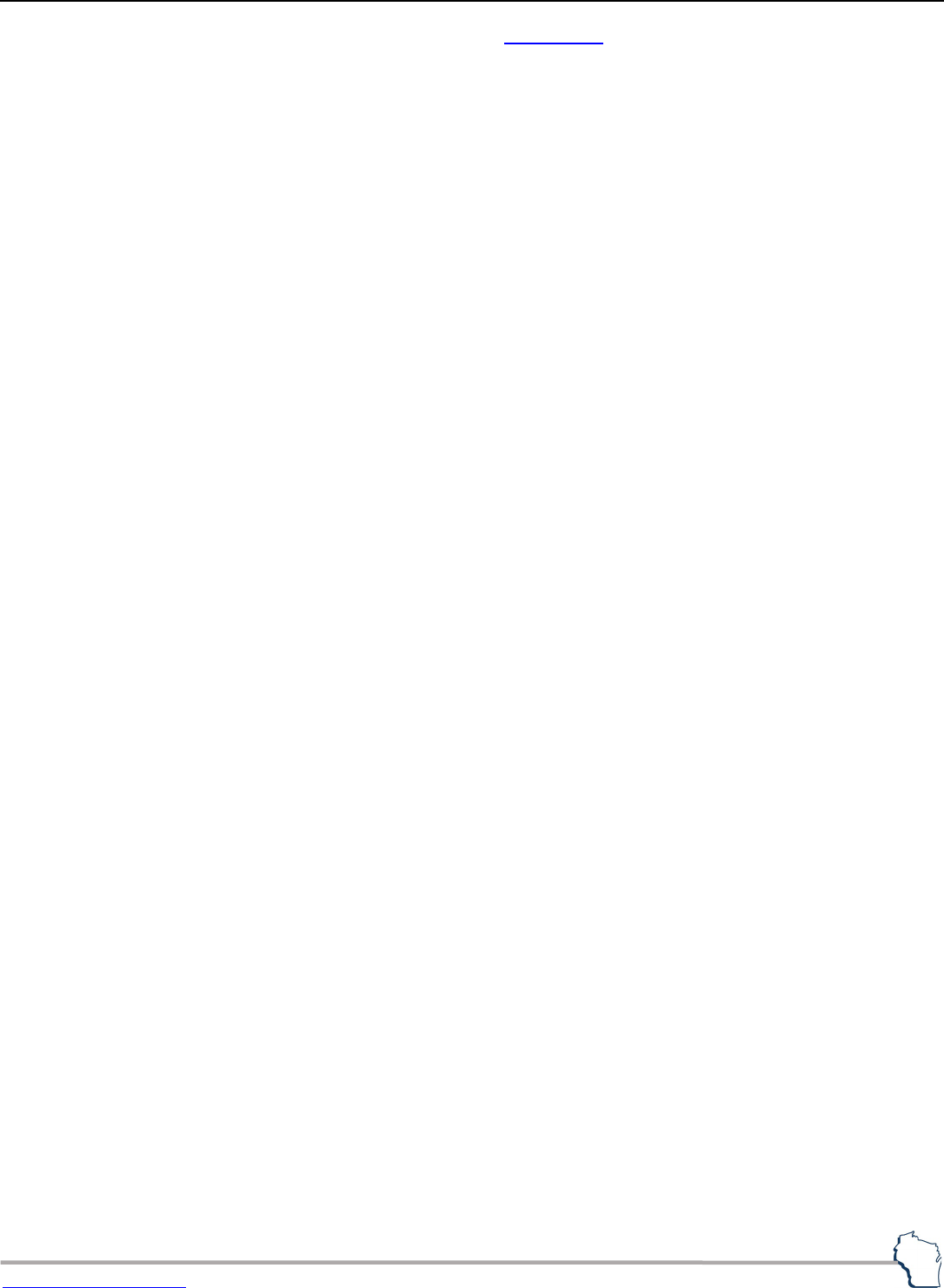
Information for Wisconsin Alcohol Beverage and Tobacco Retailers Publication 302
Back to Table of Contents
23
The vapor products tax is reported electronically using Form TT-100, Wisconsin Distributor's Tobacco and Vapor
Products Tax Return, and supporting schedules.
11. VIDEO GAMBLING
The operation of video gambling machines is a violation of Wisconsin law.
A gambling machine is a contrivance which, for a consideration, affords the player an opportunity to obtain
something of value, the award of which is determined by chance, even though accompanied by some skill and
whether the prize is automatically paid by the machine. (sec. 945.01(3), Wis. Stats.)
A "gambling machine" does not include any of the following:
• A device used in conducting a bingo occasion or raffle event under ch. 563, Wis. Stats., used in conducting a
lottery under ch. 565 or used in conducting a race under ch. 562.
• Any amusement device if it rewards the player exclusively with one or more non-redeemable free replays for
achieving certain scores and does not change the ratio or record the number of the free plays so awarded.
• An amusement device involving skill, if it rewards the player exclusively with merchandise contained within the
amusement device proper and limited to prizes, toys and novelties, each having a wholesale value which is not
more than seven times the cost charged to play the amusement device once or $5, whichever is less.
"Skill" means, within an opportunity provided for all players fairly to obtain prizes or rewards of merchandise, a
player's precision, dexterity or ability to use his or her knowledge which enables him or her to obtain more
frequent rewards or prizes than does another less precise, dexterous or knowledgeable player.
A. Enforcement
• DOR – Only a DOR special agent certified as a law enforcement officer may investigate or enforce video
gambling violations on premises of persons holding "Class B" liquor and/or Class "B" beer licenses with five
or fewer video gambling machines.
• Municipalities – Cities, towns, and villages have the authority to prohibit by ordinance all forms of gambling
and to seize anything devised solely for gambling or used for gambling. Local law enforcement investigates
and enforces these ordinance violations.
(sec. 175.38, Wis. Stats.)
B. Violations
• Having five or fewer video gambling machines on a Class B premises may result in the following:
o Seizure of the machines
o Seizure of money in the machines
o Forfeiture of $500 per machine per incident
• Having more than five video gambling machines on a Class B premises, or any number of video gambling
machines on any other licensed or unlicensed premises, is a felony.
The licensee may be arrested by a DOR special agent or a law enforcement officer of the jurisdiction where
the arrest is made.
(sec. 945.03(2m), Wis. Stats.)

Information for Wisconsin Alcohol Beverage and Tobacco Retailers Publication 302
Back to Table of Contents
24
C. Taxes
The sales price from admissions for access to illegal video gambling machines are subject to Wisconsin sales tax
and the net income is subject to Wisconsin income or franchise tax. The sales, lease, or rental of the machines
is subject to Wisconsin sales and use tax.
DOR conducts audits of both machine operators and Class B establishments for income or franchise and sales
and use tax compliance.
For more information about Wisconsin taxes on video gaming receipts, see Wisconsin Tax Bulletin 209
, page 5.
12. RESOURCES
A. Retail License Holders List
Wisconsin law (sec. 125.04(4) Wis. Stats.), requires municipal clerks to annually report by July 15 information
about each retail alcohol beverage license issued by their municipality. Municipal licenses are reported
electronically to DOR using Form AT-827
. DOR is required to publish the list of licensed retailers as reported by
municipalities.
• Wisconsin Retail Alcohol Beverage License Search
B. Wholesale Permit Holders List
Alcohol beverage, cigarette, and tobacco and vapor products retailers must purchase alcohol beverages
cigarettes, and tobacco, and vapor products only from permitted Wisconsin wholesalers. Alcohol beverage
retailers may also purchase from permitted self-distributing brewers or brewpubs.
The following lists of wholesalers holding permits issued by DOR can be found at revenue.wi.gov:
• Wisconsin Alcohol Beverage Permit Listing
• Wisconsin Cigarette or Tobacco Products Permit Listing
C. Published Guidance
DOR has publications, fact sheets, newsletters, and answers to common questions that provide additional
information about alcohol beverages, cigarette, tobacco, and vapor products. These resources can be found at:
• Alcohol Beverage: https://www.revenue.wi.gov/Pages/AlcoholBeverage/home.aspx
• Cigarette, Tobacco, and Vapor Products: https://www.revenue.wi.gov/Pages/Businesses/Tobacco.aspx
D. Subscribe to DOR News
Sign up
to receive news via email updates from DOR. Click "Alcohol Beverage News" and/or "Cigarette, Tobacco,
and Vapor Products."
If you are unable to find an answer to your questions about the Wisconsin alcohol beverage laws, visit the DOR's
website, email, write, or call:
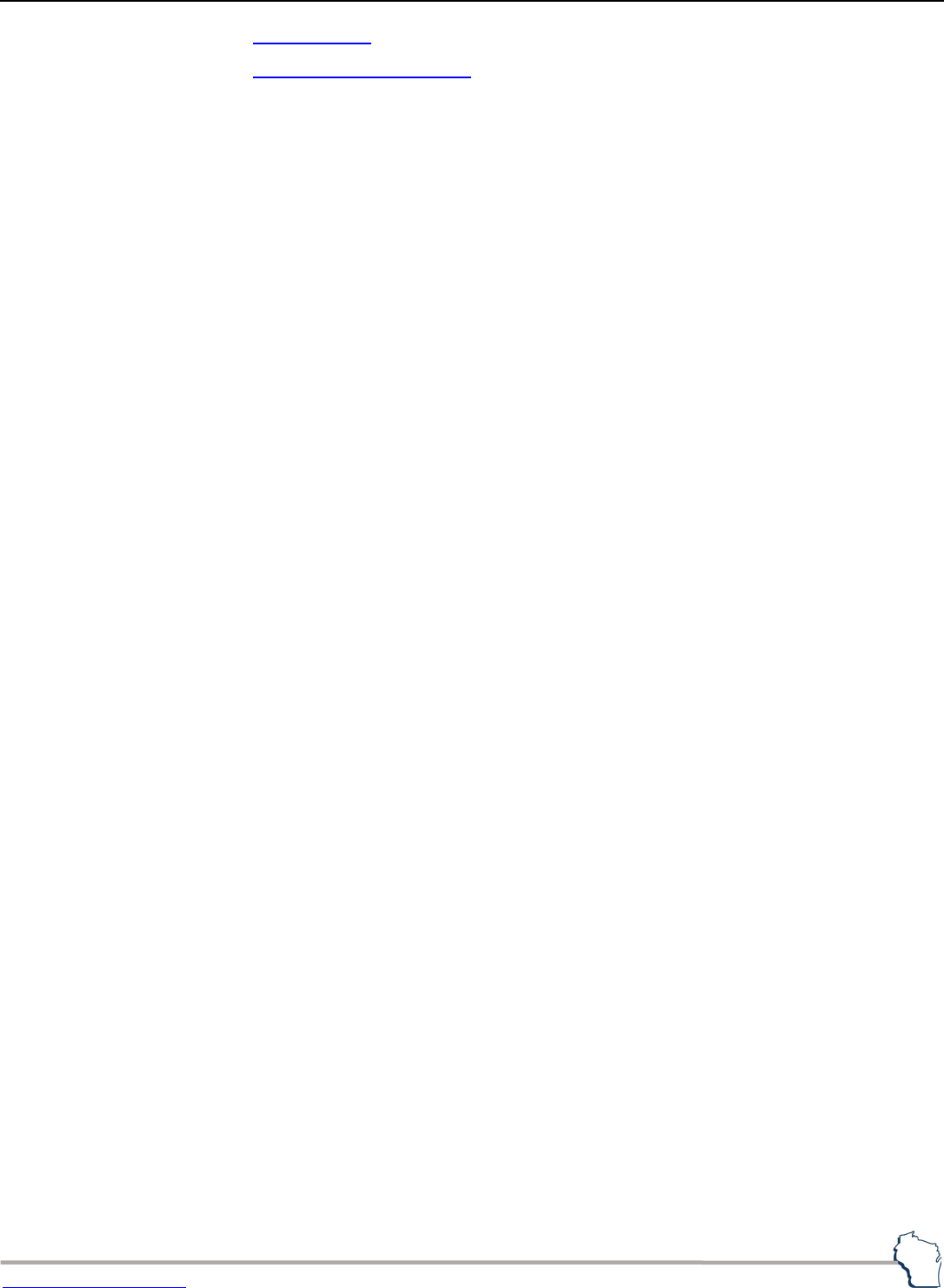
Information for Wisconsin Alcohol Beverage and Tobacco Retailers Publication 302
Back to Table of Contents
25
Visit our website . . . revenue.wi.gov
Email. . . [email protected]v
Write . . . Wisconsin DOR
P.O. Box 8933
Madison, WI 53708-8933
Telephone. . . (608) 264-4573
